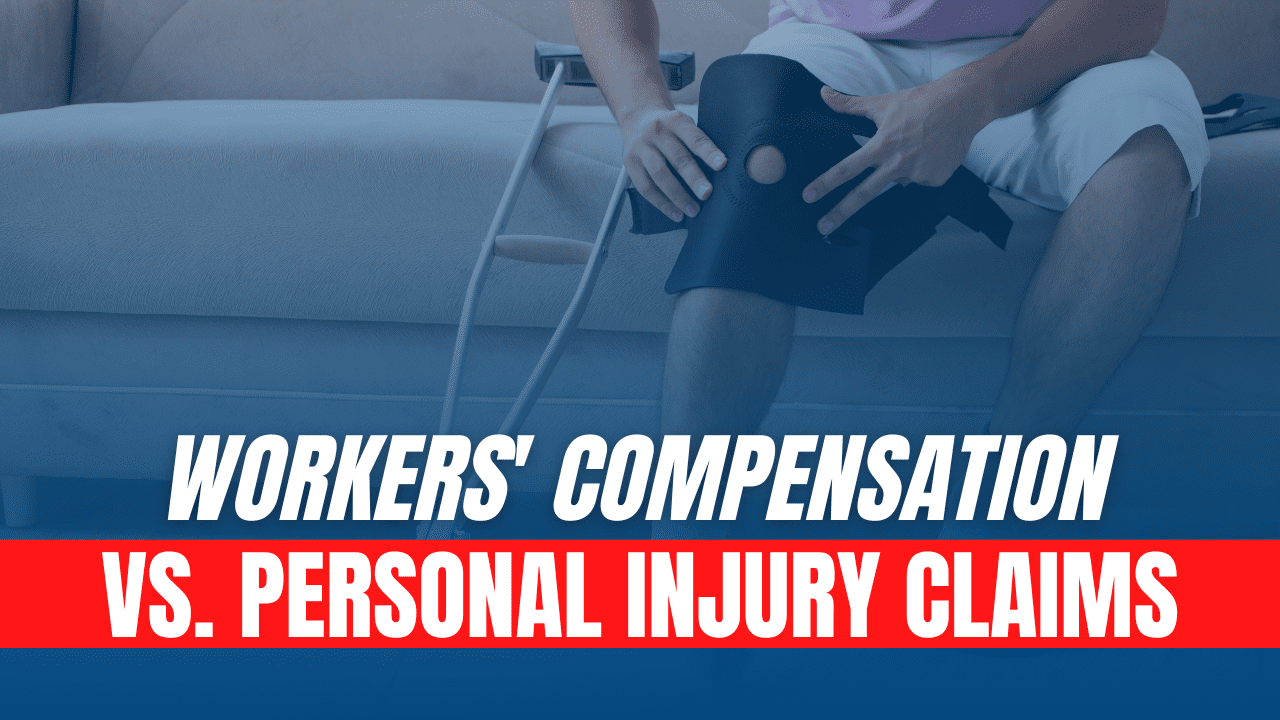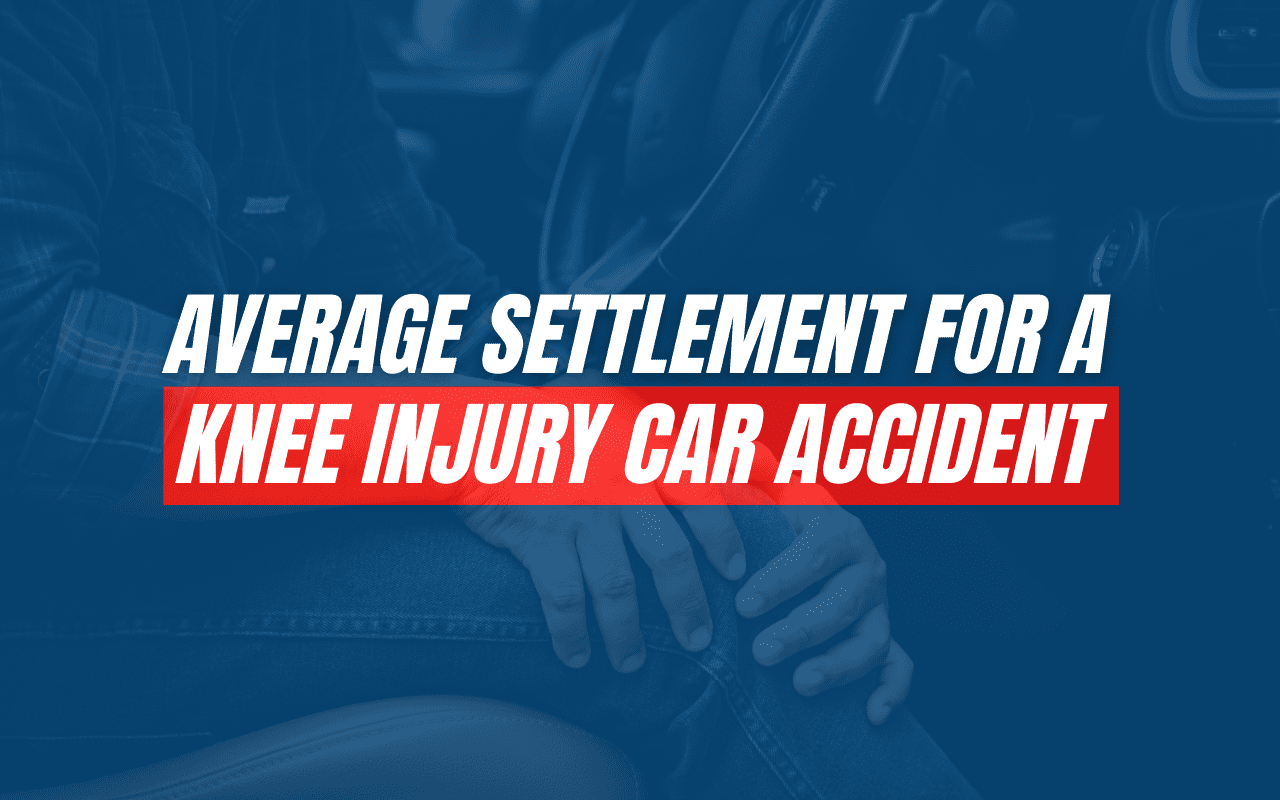
Understanding Your Rights: Workers Comp vs Personal Injury Claims in Florida
In Florida, injured parties often face a crucial choice: should you file for workers’ comp or initiate a personal injury claim? Here’s the crux: workers’ comp is typically fault-agnostic and covers work-related incidents, while personal injury claims depend on establishing someone else’s negligence. This guide demystifies workers comp vs personal injury claims in Florida, helping you discern routes to compensation and your next steps.
Key Takeaways
- Workers’ compensation in Florida is a no-fault system providing medical benefits and partial wage replacement without requiring fault, while personal injury claims require proving another party’s negligence.
- There is a two-year statute of limitations for filing a workers’ compensation claim in Florida, though specific exceptions may apply, and missing the deadline can lead to loss of benefits.
- Personal injury claims in Florida offer compensation for both economic and non-economic damages, and can cover a broader range of losses compared to workers’ comp; however, they require establishing liability and proving negligence.
Navigating Compensation After a Work-Related Injury
After experiencing a work-related injury, you should:
- Promptly inform your supervisor
- Get medical attention
- Compile evidence
- Submit a workers’ comp claim
Consistent adherence to medical advice, meticulous record-keeping, and timely legal counsel are key to safeguarding your rights. Workers’ compensation and personal injury claims, including workers compensation claims, are the two main avenues for pursuing benefits and compensation, each with its unique set of requirements and benefits.
The primary distinction between these two claims lies in the requirement to establish fault. While workers’ compensation benefits are not dependent on fault, personal injury claims necessitate the demonstration of another party’s fault or negligence. Hence, when choosing between a workers’ compensation claim and a personal injury lawsuit, it is important to weigh various factors. One of the crucial factors is that the level of an employee’s fault does not impact workers’ compensation benefits, unlike in personal injury claims.
The Essentials of Workers Compensation in Florida

The essence of workers’ compensation in Florida lies in its no-fault nature and its provision of medical benefits and partial wage replacement to injured employees. Coverage includes doctor visits, hospitalization, physical therapy, medical tests, and prescription drugs.
Most businesses with four or more employees are mandated by law to have workers’ comp coverage.
Understanding Workers Comp Benefits
Workers’ compensation provides a variety of medical care options to injured employees. These benefits encompass:
- doctor’s visits
- hospitalization
- physical therapy
- medical tests
- emergency room visits
- medications
- rehabilitation treatments
But it’s not just about covering the cost of medical bills.
In addition to medical benefits, Florida’s workers’ compensation also offers vocational rehabilitation services to facilitate the return of injured workers to the workforce. In cases of fatalities, death benefits are provided, which include coverage for funeral expenses up to $7,500.
Time Limits for Filing a Workers Comp Claim
Time is of the essence when filing a workers’ compensation claim in Florida. Claims must be filed within two years from the date of injury, or from the date the employee became aware that their injury or illness was work-related. However, there are exceptions to the two-year filing deadline in specific exceptional circumstances, although these are not explicitly outlined.
Exceeding the two-year timeframe can have serious repercussions. It can lead to forfeiture of entitlement to benefits and even complete disqualification. It could also potentially lead to penalties for delayed benefit payments.
When to Consider a Personal Injury Claim
Although workers’ compensation is usually the go-to for work-related injuries, some circumstances may justify a comp or personal injury claim. Unlike workers’ comp, personal injury claims require the demonstration of negligence and the establishment of liability.
Personal injury claims commonly occur from car accidents, workplace injuries, slip and falls, and product defects. In Florida, examples of injuries that qualify for a personal injury claim include traumatic brain injury, paralysis, severe burns, spinal cord injuries, head injuries, and loss of limb.
Recovering Full Compensation Through Personal Injury Claims
In Florida, personal injury claims provide a more extensive range of compensation than workers’ compensation. They include both economic and non-economic damages. Economic damages compensate for financial losses such as medical expenses and lost wages. Non-economic damages, on the other hand, address the intangible adverse effects of the injuries, such as pain and suffering.
Claimants have the opportunity to seek a range of damages, including compensation for:
- disabilities
- permanent impairments
- scarring and disfigurement
- physical pain and suffering
- mental anguish
However, the pursuit of full compensation can encounter obstacles such as the restricted timeframe for filing a claim and potential limitations on obtaining compensation for pain and suffering.
Proving Liability in Personal Injury Cases
Establishing liability in personal injury cases involves demonstrating that the at-fault party was negligent and breached their duty of care towards the plaintiff. This breach must have directly led to the injury and resulted in damages. The standard of proof in personal injury cases is ‘a preponderance of the evidence,’ indicating that it’s more probable than not that the defendant’s negligence caused harm to the plaintiff.
In personal injury cases, the importance of evidence cannot be overstated. Some key types of evidence include:
- Medical records
- Witness testimony
- Expert testimony
- Photographs
- Police reports
- Personal narratives
All of these pieces of evidence play a role in demonstrating the defendant’s negligence and the causation linking their actions to the plaintiff’s injuries.
Comparing Claims: Workers Comp vs Personal Injury
Workers’ compensation and personal injury claims are distinct in their purposes and each has its unique eligibility criteria, advantages, and deadlines for filing. Workers’ compensation is accessible for injuries and illnesses related to work, providing benefits such as medical treatment, disability benefits, rehabilitation benefits, and death benefits. However, the key to eligibility is being an employee, the injury occurring during work or because of work, and the employer having workers comp or personal insurance.
On the other hand, personal injury claims have the following characteristics:
- They hinge on the establishment of liability
- The other party must demonstrate negligence and wrongdoing for the claimant to seek damages
- Personal injury claims have a two-year statute of limitations from the date of the injury.
Legal Strategies for Maximizing Your Claim
Having legal representation can notably increase your likelihood of obtaining the maximum compensation possible. Attorneys advocate for higher settlements, present evidence, and strive to secure the best possible compensation based on your case’s specifics. They employ strategies such as:
- Waiting for maximum medical improvement before settling
- Documenting all injuries
- Collecting evidence
- Negotiating with the insurance company
When choosing a lawyer for your claim, consider the following factors:
- Their experience with similar cases
- Their proposed strategy for your case
- Potential alternatives to litigation
- The details of their fee structure
A lawyer’s experience and successful track record are crucial as they demonstrate expertise in navigating complex legal systems and achieving favorable outcomes.
Third Party Claims: Another Avenue for Recovery
In certain situations, injured workers may file a third-party claim in addition to a workers’ comp claim. A third-party claim is a legal claim against a party other than the employer whose negligence or recklessness led to the work-related injury. A third-party claim can be pursued concurrently with a workers’ comp claim, allowing the injured party to pursue additional compensation from the party accountable for the injury.
Filing a third-party claim can provide additional compensation for the following aspects:
- Pain and suffering
- Emotional distress
- Loss of autonomy
- Punitive damages
It can also optimize potential recovery for the injured worker, ensuring the best possible outcome for the employee.
The Role of Contributory Fault in Florida Injury Claims
Contributory fault refers to the accountability that the claimant may hold in a negligence action. It can impact the potential damages they could receive, reducing their compensation based on their level of fault. The level of fault is determined by proportionately reducing the damages awarded based on the claimant’s degree of fault.
However, Florida adheres to a pure comparative fault rule, allowing for the pursuit of compensation even if the claimant bears some responsibility. This rule means that a claimant who is determined to be 51% or more responsible for the accident is ineligible to receive damages. But if their responsibility is below this threshold, they can still obtain damages, albeit reduced by their percentage of fault. In contrast to the no fault system, Florida’s approach provides a more balanced solution for accident victims.
Take Action: How to Proceed with Your Claim
With a good grasp of your rights and the intricacies of workers’ comp and personal injury claims, the next logical move is to proceed. Consultation with a knowledgeable attorney from a personal injury law firm is essential to identify the optimal course of action for your workplace injury claim and to ensure comprehensive protection of your rights.
When you need to file a workers comp, it is paramount to:
- Carefully document the incident
- Seek immediate medical treatment
- Inform your employer about the injury
- Submit the workers compensation claim within the prescribed two-year period
It is also important to understand that your employer is prohibited by law from retaliating against you for initiating or attempting to initiate a claim.
Contact Our Florida Personal Injury Attorney Today
In the complex world of workers’ compensation and personal injury claims, understanding your rights is paramount. We have navigated the intricacies of these claims, explored the benefits of workers’ comp, dived into the nuances of personal injury claims, compared the two, and provided strategies to maximize your claim. Remember, legal advice is invaluable in these situations, and third-party claims may offer an additional avenue for recovery. Ultimately, your understanding of these aspects, coupled with the right legal advice, can help protect your rights and ensure you get the compensation you deserve.



